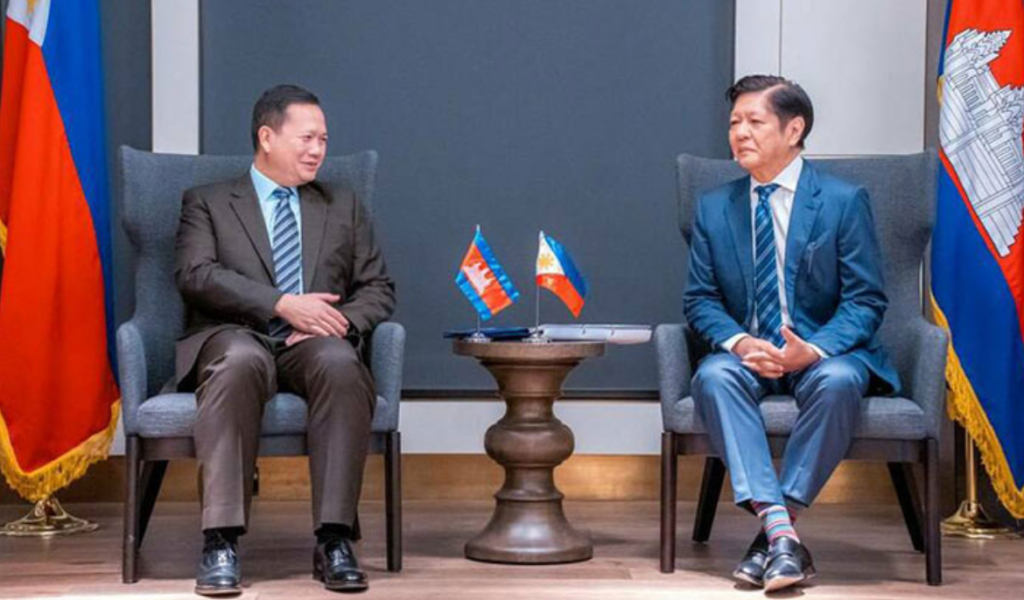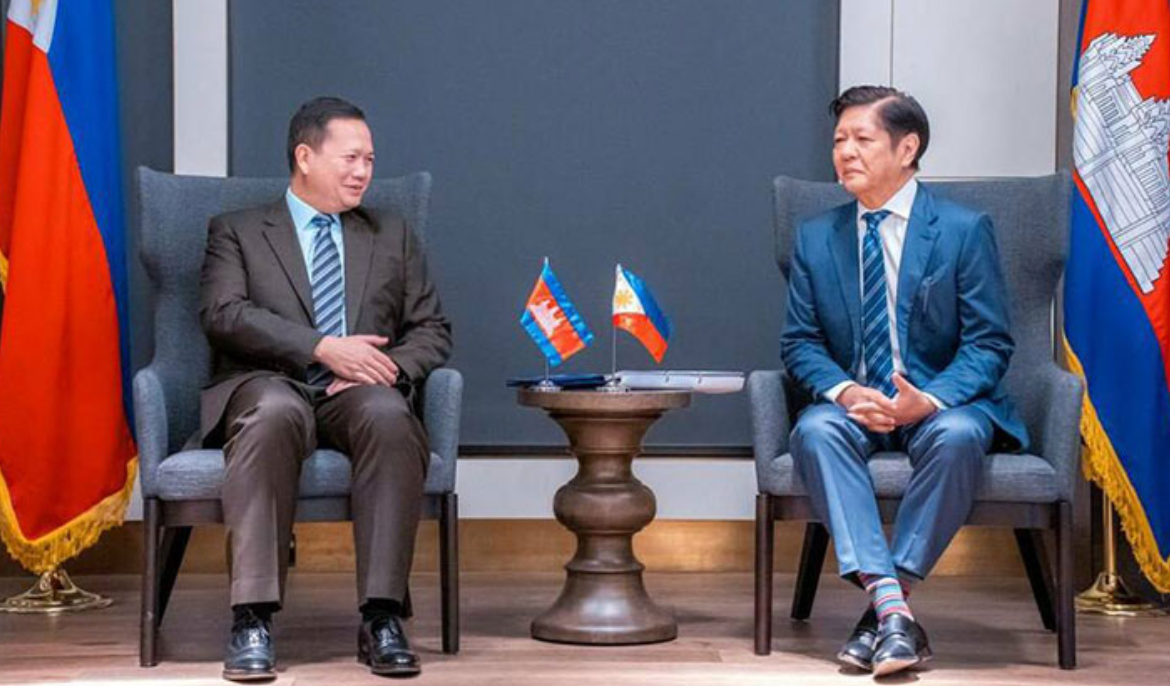Trade and tourism will dominate the agenda during Prime Minister Hun Manet’s two-day visit to the Philippines beginning today, The Manila Times reported.
Mr Hun Manet will also be discussing matters related to defence along with regional and multilateral cooperation with Philippines President Ferdinand Marcos Jr, the newspaper said, quoting an official Malacanang statement.
Malacanang is the official residence of the Philippines President.
“President Ferdinand R Marcos Jr will welcome HE Samdech Moha Borvor Thipadei Hun Manet, Prime Minister of Cambodia, on his first official visit to the Philippines on February 10-11, 2025,” read the statement.
“Their tete-a-tete, bilateral meeting, and joint press conference will be followed by an official luncheon at Malacanang in honour of the Cambodian Prime Minister and his First Lady,” the statement added.
Alongside strong existing bilateral ties, the report also cited the role of 7,000-plus Filipinos residing and working in Cambodia in boosting the relations between both nations.
During the earlier meeting held between both leaders last year, trade, defence and boosting air connectivity remained the top priorities of discussion. The meeting was held in Melbourne on the sidelines of the Asean-Australia special summit.
Both sides agreed to promote Cambodian milled rice exports to the Philippines and foster connections between their respective private sectors to boost bilateral trade relations.
In terms of connectivity, they underscored the significance of tourism and agreed to explore enhancing airway connectivity and increasing direct flights, particularly to various tourist destinations in both countries.
Two months ago, Cambodian Foreign Minister Prak Sokhonn and Flerida Ann Camille P Mayo, Ambassador of the Republic of the Philippines to Cambodia, held a meeting to reaffirm the robust relationship between Cambodia and the Philippines, and underscored the commitment to strengthen cooperation across various sectors.
Negotiations are also progressing on the Cambodia-Philippines Double Taxation Agreement (DTA), which is scheduled to be signed and implemented in the current year.
The Cambodian and Philippines governments have concluded the final draft of DTA between the two nations, in a bid to improve trade and ease investment mechanisms.
The DTA will significantly reduce barriers to trade and investment and the encouragement of cross-border economic activities between the nation’s private sectors.
The final draft also encompasses taxation of income earned by citizens and residents of the Philippines and Cambodia, along with how each country’s tax administration shall impose and credit taxes paid, in accordance with the tax rules in both countries.
According to the Cambodian General Department of Taxation (GDT), the Philippines DTA is just one of many new taxation agreements Cambodia is currently working on with global trade partners to improve global trade and business flows in the near future.
Speaking to Khmer Times, economist Duch Darin said trade and tourism between the Philippines and Cambodia are likely set to further boost. “From a trade standpoint, there is complementarity between the two countries’ economies: Cambodia supplies the agricultural products – rice, rubber, cassava – and the Philippines offers processed goods and machinery. Bilateral trade agreements that strengthen can help unlock opportunities for both nations’ businesses.
“This is especially true for destinations such as Angkor Wat and Phnom Penh and the Philippines is a key source market for Cambodia on the tourism front.
“More Cambodians, on the other hand, are discovering the Philippines, especially its beaches and historical sites. Closer air links and coordination in tour promotions may boost the exchange of visitors between the two economies as well.
“I am optimistic that the visit is expected to result in a fruitful discussion on trade, investment and tourism cooperation between the two countries.”



